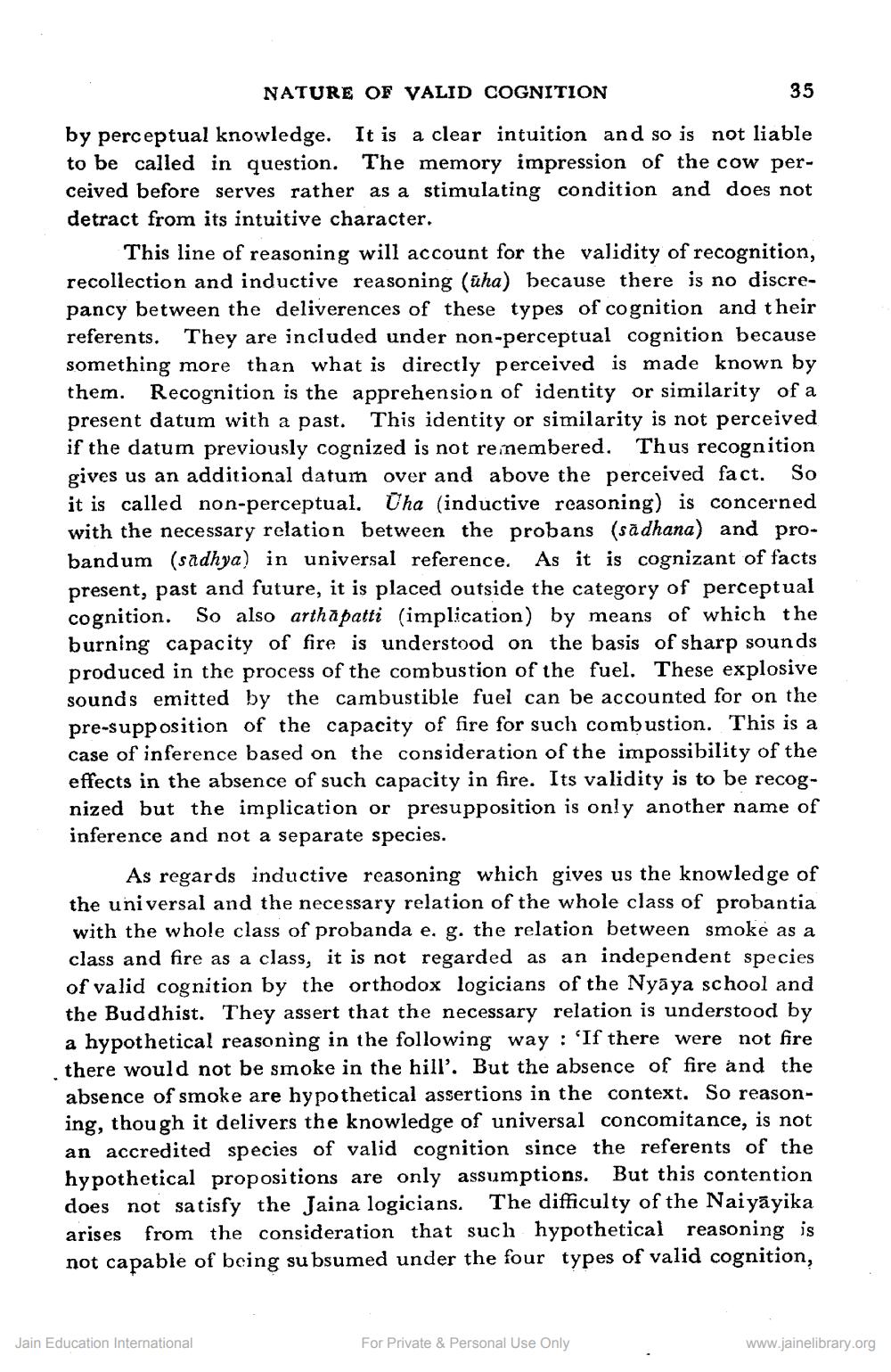________________
NATURE OF VALID COGNITION
35
by perceptual knowledge. It is a clear intuition and so is not liable to be called in question. The memory impression of the cow perceived before serves rather as a stimulating condition and does not detract from its intuitive character.
This line of reasoning will account for the validity of recognition, recollection and inductive reasoning (üha) because there is no discrepancy between the deliverences of these types of cognition and their referents. They are included under non-perceptual cognition because something more than what is directly perceived is made known by them. Recognition is the apprehension of identity or similarity of a present datum with a past. This identity or similarity is not perceived if the datum previously cognized is not remembered. Thus recognition gives us an additional datum over and above the perceived fact. So it is called non-perceptual. Üha (inductive reasoning) is concerned with the necessary relation between the probans (sādhana) and probandum (sadhya) in universal reference. As it is cognizant of facts present, past and future, it is placed outside the category of perceptual cognition. So also artha patti (implication) by means of which the burning capacity of fire is understood on the basis of sharp sounds produced in the process of the combustion of the fuel. These explosive sounds emitted by the cambustible fuel can be accounted for on the pre-supposition of the capacity of fire for such combustion. This is a case of inference based on the consideration of the impossibility of the effects in the absence of such capacity in fire. Its validity is to be recognized but the implication or presupposition is only another name of inference and not a separate species.
As regards inductive reasoning which gives us the knowledge of the universal and the necessary relation of the whole class of probantia with the whole class of probanda e. g. the relation between smoke as a class and fire as a class, it is not regarded as an independent species of valid cognition by the orthodox logicians of the Nyaya school and the Buddhist. They assert that the necessary relation is understood by a hypothetical reasoning in the following way : 'If there were not fire there would not be smoke in the hill'. But the absence of fire and the absence of smoke are hypothetical assertions in the context. So reasoning, though it delivers the knowledge of universal concomitance, is not an accredited species of valid cognition since the referents of the hypothetical propositions are only assumptions. But this contention does not satisfy the Jaina logicians. The difficulty of the Naiyāyika arises from the consideration that such hypothetical reasoning is not capable of being su bsumed under the four types of valid cognition,
Jain Education International
For Private & Personal Use Only
www.jainelibrary.org




